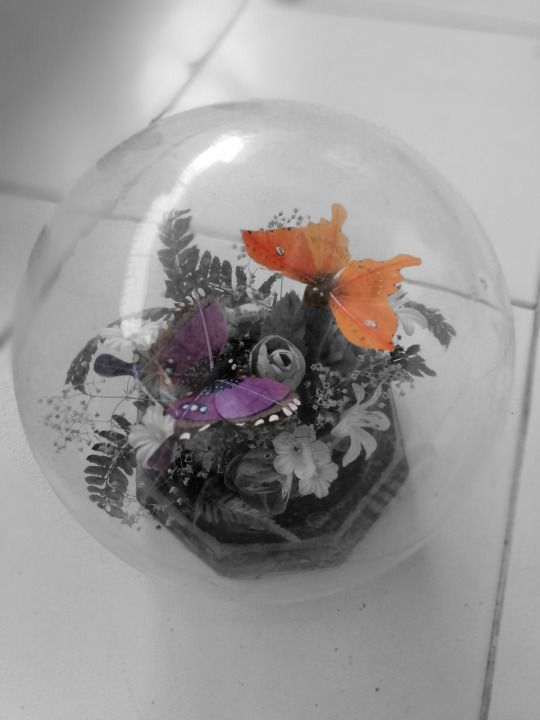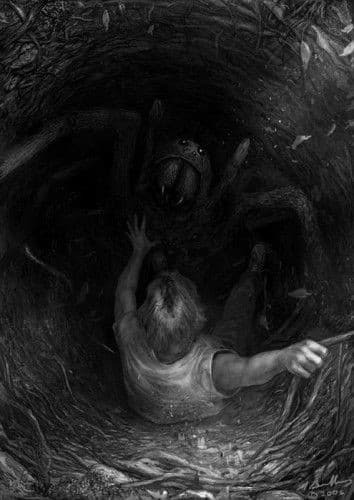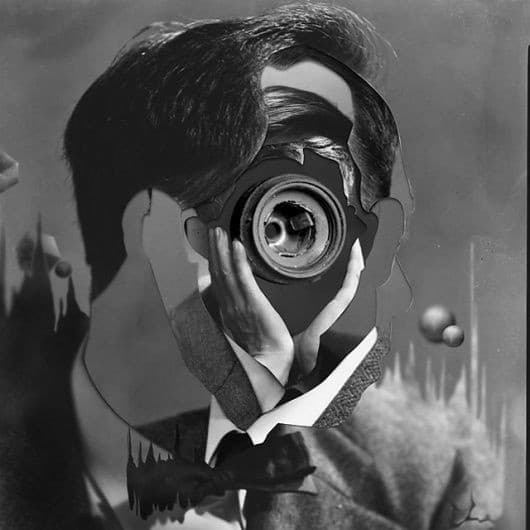Hi my name is Zxyv S. Lisondra. I am about to share with you all of my sorts of weird ideas. So be sure to follow and be updated for more contents :)
Don't wanna be here? Send us removal request.
Photo

“...Inevitable color of burning passion pullulate, shall rise from the ash of endless hate!"
“Little things to appreciate in the brink of hopefulness amid the ongoing quarantine.”

“We are still bound, even if the world flips upside down…”
1 note
·
View note
Text
“Educational Poverty Hinders Youngster’s Growth”
BY: ZXYV S. LISONDRA
“Education is the most powerful weapon which you can use to change the world,” as the famous Nelson Mandela, the first black head of state of South America, was his message for the aspiring children who are willing to learn beyond their prior knowledge. Lacking the access to education had been one of the major issues of poverty. Educational Poverty—In accordance to the ASSITEJ (International Association of Theater for Children and Young People), it is define as a process of limitation of children’s right to education and deprivation of their opportunities to learn and develop the skills they will need to succeed in a rapidly changing society. This means that it compromise or peril such emotional growth and learning of youngsters around the world and its building connection beyond their socio-cultural environment. Those who receive benefits such substantial access to education will be acquired enough knowledge and guidance on how to deal with the harshness from the depriving consequences such as exploitation, discrimination, and poor health. This can be achievable if such coordination and cooperation from the authorities will comply with the ongoing prevalent issue. Educational Poverty is one of the contemporary issue that deters the goal of serving as an impetus to bring up the communities from their poverty; without the crucial knowledge to be learned, it will deprive children and adolescents to know how things beyond their prior knowledge works, thus it is essential to have a discussion of the said issue that hinders the growing process.
First, we must know why education had been a great way to assess oneself in improving the quality of life. Education serves as an impetus to bring up the communities from their poverty; thus, known for honing such skills and abilities since in accordance to United Nations, Educational, Scientific and Cultural organization (UNESCO) children who receive quality primary education are more likely to develop these assets at a higher level than those who don’t. They can then use these abilities and skills to earn higher incomes or further develop other basic assets. Even if it is just a vocational type of education or also called as life skills—activities like critical thinking, creative art & craft work, decision-making, problem-solving, an ability to collaborate & communicate along with a sense of responsibility towards personal as well as society at large, to contribute good citizenship comes under it. By recognizing cultural awareness and citizenship, the more these benefit the world in which we live making international cooperation easier with people of other societies and by respecting diversity to allow creativity and imagination to flourish a more developed society. Through this, several positive outcomes would be in the process of eradicating such factors that deteriorate the purpose of learning: Ending discrimination; this was tackled before back then the year 1960, where the UNESCO said that the Declaration of Human Rights asserts the principle of non-discrimination and proclaims that every person has the right to education. In addition, it is the respecting the diversity of the national educational systems has the duty not only to proscribe any form of discrimination in education but also to promote equality of opportunity and treatment for all in education (UNESCO). Like with the issue on patriarchal tradition amongst countries, education in general had provided enough knowledge that rose up the feminist movement that serves as the voice for women who are been exploited such as child- and force marriage, gender-based violence, and sexist policies. By achieving human equity globally is crucial to meeting development goals, reducing human suffering and solving our biggest environmental problems. Furthermore, it also helps decreases the risk and vulnerability of one’s welfare. Health is a crucial factor in one’s chance of survivability since it allows one to be aware at the importance taking care of good hygiene, pregnancy and prenatal care; and sexual health. This can reflect back where a case study in Ebola, major regions such The Republic of Congo had there was a huge amount of misinformation about how the disease was spreading. Many people used old wives’ tales and folklore to understand the disease rather than scientific knowledge. One of the major things to do was teach people how to bury the dead appropriately to prevent the spread of the disease. Aside from that, having the knowledge of mitigation—actions taken to prevent or reduce the risk to life, property, social and economic activities, and natural resources from natural hazards—is central to the Decade initiative. Awareness, education, preparedness, and prediction and warning systems can reduce the disruptive impacts of a natural disaster on communities. Borgen Project, widely known as an innovative, national campaign that is working to make poverty a focus of US Policy, reported that violent conflict contributes to poverty in a number of ways, including causing: damage to infrastructure, institutions and production; the destruction of assets; the breakup of communities and social networks; forced displacement and increased unemployment and inflation. Conflict and security are the leading emerging conflicts of all time since it is inextricable to poverty.
Without education, it will deprive children and adolescents to know how things beyond their prior knowledge work that could lead them to: acquiring poor health—as this was already stated earlier, Neil Pakenham-Walsh, founder of the Healthcare Information for all by 2015 campaign said that, “Of the approximately 50 million people who were dying each year in the late 1980s, fully two thirds could have been saved through the application of that knowledge.” Education can counter this with giving a proper income/resources, socio-psychological benefits, healthy behaviors, and healthier neighborhoods to one’s welfare according to the Center on Society and Health Organization. Also, it not uncommon that the poor will experience exploitation since people who have not been educated may have to resort to terrible types of work just to survive. In a world of limited jobs, those with an education get first pickings of the safer and more secure work. For example, woman in third world countries are more likely to be prone to: Prostitution, Sweatshop Labor, Domestic Labor, Being married off as child brides. Moreover, a case study from UNICEF—Syrian Civil War; many Syrian children are lured into fighting for the government in the civil war. These children – rather than going to school – need to work to feed their families. The US$400 per month soldier salary is often their only option due to their lack of skills. Similarly, Syrian children who flee to Turkey end up working in sweatshops earning $10 a day to feed their families. According to The Guardian, sexual and physical abuse takes place in these sweatshops regularly. A further factor is the increase in unemployment rate due to automotive revolution—we have already seen many millions of jobs disappear over the past few decades due to the introduction of robots. Think of factory lines or – closer to home – automated cashiers at the supermarket. These are just the beginning. As artificial intelligence comes closer to reality, chances are that more and more low-skilled jobs will come off the market.
This was further supported from the statistical report from Organization for Economic Cooperation and Development (OECD) which said that that across all OECD nations: 83% of people with a university degree are employed; 74% of people with an upper secondary or non-university postsecondary education (e.g. a trade qualification) are employed; 56% of people without an upper secondary education are employed. Thus, results to “economic brake growth”—nations are competing against each other for economic dominance. If a nation is more educated, the nation’s productivity is higher and its workers are more innovative. The nation attracts higher-paying jobs in growth industries.
Gender Inequality has been a noticeable aftermath of the issue; Over 130 million young women around the world are not currently enrolled in school. One in 3 girls in the developing world marries before the age of 18, and usually leaves school if they do. Girls often miss out due to belief that there’s less value in educating a girl than a boy. Instead, they are sent to work, forced into marriage, or made to stay at home to look after siblings and work on household chores. Equal representation in leadership and community decision-making is more likely to build better resilience, improve risk management and advance environmental preservation. Basic education can also help women access their social and legal rights, and enable them to participate in politics. Summing it all up, if these major factors prolong, they will experience only a short lifespan as expected.
With the said negative outcomes, this is followed by which various factors that causes to occur like the Lack of funding—only 20% of aid for education goes to low-income countries, according to the Global Partnership for Education (GPE). But it costs an average of $1.25 a day per child in developing countries to provide 13 years of education; Having no teacher or having untrained teacher, No classroom, Lack of learning materials. Next, is the exclusion of children with disabilities—a combination of discrimination, lack of training in inclusive teaching methods among teachers, and a lack of accessible schools leave this group uniquely vulnerable to being denied their right to education. Despite the fact that education is a universal human right, being denied access to school is common for the world’s 93 to 150 million children with disabilities. In some of the world’s poorest countries, up to 95% of children with disabilities are out of school. Aside from that, it is also the expense of education. The Universal Declaration of Human Rights makes clear that every child has the right to a free basic education, so that poverty and lack of money should not be a barrier to schooling. In many developing countries, over the last several, decades, governments have announced the abolition of school fees and as a result, they have seen impressive increases in the number of children going to school.
In countering these issues, the Environmental Awareness Organization sets a various guidelines to follow: Better educational infrastructure—governments and municipalities should try to provide better educational infrastructure so that it is easier for the local population to attend school. Simply saying, the authorities should create facilities that are only a walking distance which means that these facilities should be just only near town or villages. Another solution would be a financial support. By supporting poor families, educational inequality could be fought to a certain extent since it is crucial to support poor families with financial subsidies so that their kids are able to attend school. Last but not the least is the raising awareness for the importance of education. Parents may believe that a basic education taught at home is sufficient to succeed in life since they do not know better thus might not even be aware what a lack of education really means for their children. However, with our technological progress, it is likely that education will be more important than ever to succeed in our nowadays job market.
Education is nonetheless crucial in survivability as it will guide an individual on its life long journey and if not been carefully informed, disarray of consequences must be mitigated immediately as this could only lead more to getting risk of exploitation from the abusers and vulnerability to such unknown dangers of not knowing of what he or she is dealing to. As one of the occurring issue that is still being tackled nowadays, Educational Poverty had change the course of each youngster’s will to learn of what is beyond of what they only know. Without it, the chance of exploring such undiscovered knowledge is a huge hindrance for the growth progress of the families and the communities.
0 notes
Text
Gray Man
(Dedication to Charles Bukowski)
O stumbled upon this gray man
He who is ugly yet tranquiled
Vagued in the plain sight
Of his existence.
This man had provoked me
My greatest weakness
Pounded, self harmed
Yet he surpassed my worst fears
Ambiguities. How fool was I?
He laughed and shuckled his beer drink
He talks and made fun
of what lifes offer to him.
I do not sense fear unto his soul
For i had witnessed for
He who loses with style
Like how a soaring eagle
Targets its prey, deep down,
Side of a mountainous
Treacherous path.
0 notes
Text
“Farewell’s Beginning” - A reflection paper

It was the biggest turning point towards my little knowledge about the world and its beliefs, as a Humanities and Social Sciences Student. It was truly a magnificent and shocking feeling towards this literary piece that was inevitably bound to nurture the mindful youth of the present generation. And I am proud to be part of it. I was never been satisfied like this before. I think, it gave me more opportunities to counter flow the many obstacles in my existential beliefs. But above all, I really nurtured the idea of critical thinking. The ability to understand between the lines of the many if not two contradicting ideas. This idea of thinking had made me wonder if I really had enough knowledge to compete in this madly world governed by the power of money that was created by the man’s worldly illusions that came from the fragments of one’s powerful mind. I was so badly yet also pleased since I woke up from the words of our professor due to his perspective and shared knowledge that sometimes the topic itself is not related even to the subject lessons. A motive of mine that is pushing me to surpass the dreadful limits of the everyday capacity of my brain. Leading me more to the educational aspect of life that I want to desperately materialize since the world is so big enough to be discovered further.
To make things clearer on my reflection towards this subject, I would start from the religious aspect. From the very first day I got into that subject, I always had these feelings that I am not alone in questioning my own experiences and diversified beliefs. I even open this up to our family dinner. Expectations destined to conclude, they somehow didn’t agree lightly on my own belief - that is about I don’t really do traditional praying because I always had the idea of not depending up too much in the theological aspect that will just suddenly answer my prayers. Addition to that, my expression of total freedom is already from the time I was born in this world. The life that I didn’t demand and was given to me, is already enough to answer my existential needs. It lead me to the idea of the happenings in my surrounding, in life may it be physical or mental, that I will only blame myself and nothing else, nothing more.
To finalize the encapsulations to my shared thoughts, I am about to show you that how it affects my idea of survival tactics and needs in this world. In order to be powerful or limitless, I must gain myself some knowledge to be wary of what I am about to encounter in the mysteries of the future. I should not stop or to be contented on what I equipped now. There will be always a room for more experiences and improvement. Hence, even Nelson Mandela conducted the idea of education as being the most powerful weapon a man can have.
Again, it was truly a magnificent and shocking experience. Thank you Sir Valentine Dula.
0 notes
Text
“The big plot hole”

I was so baffled and mind blown from the words of perspective from an Atheist. Base on the knowledge and experiences throughout my life at the aspect of faith to a divine creator, I was surprised because in the society I had always thought that Atheist don’t really much care about the religious stuff and conflicts. The way I see it, I think he is making sense based on the video presentation, “Do you Know God?”.
One statement that leaved a mark on my mind, he told to the theists (religious people) that if God is so perfect, the divine being should have been resolved the issue in the first place or even didn’t really need to at all since the creator itself is perfect! Its like he’s pointing out that God have the all powers, it could have just like one snap away the universal conflicts (Specifically the diverse religious groups and its many culture).
A reaction paper to a video: https://www.youtube.com/watch?v=P0A_iF1B3k0&feature=youtu.be
0 notes
Text

(Originally posted by legacyofhorror source: pinterest.com)
Till this day, the one thought that still kept me believing in the divine creator is that everything has a beginning to start with. If not, then why are we still here? A horrifying thought that I think it is bound to be unanswered. At least, it is a small answer to hold on to.
“The Cults’ Interlace”

(Originally posted by designsinspiration source: pinterest.com)
“Religion is the opium of the people.” -Karl Marx
Throughout my life I held on, somehow, I had experienced 3 different cultures in the world of religion: Being a Christian in a Catholic church; attending Born-again masses which the difference is it includes a lot of appraisals in a form of choir or band playing, and a few Islamic teachings and cultures shared by my mother side but didn’t lasted for a couple of years.
1 note
·
View note